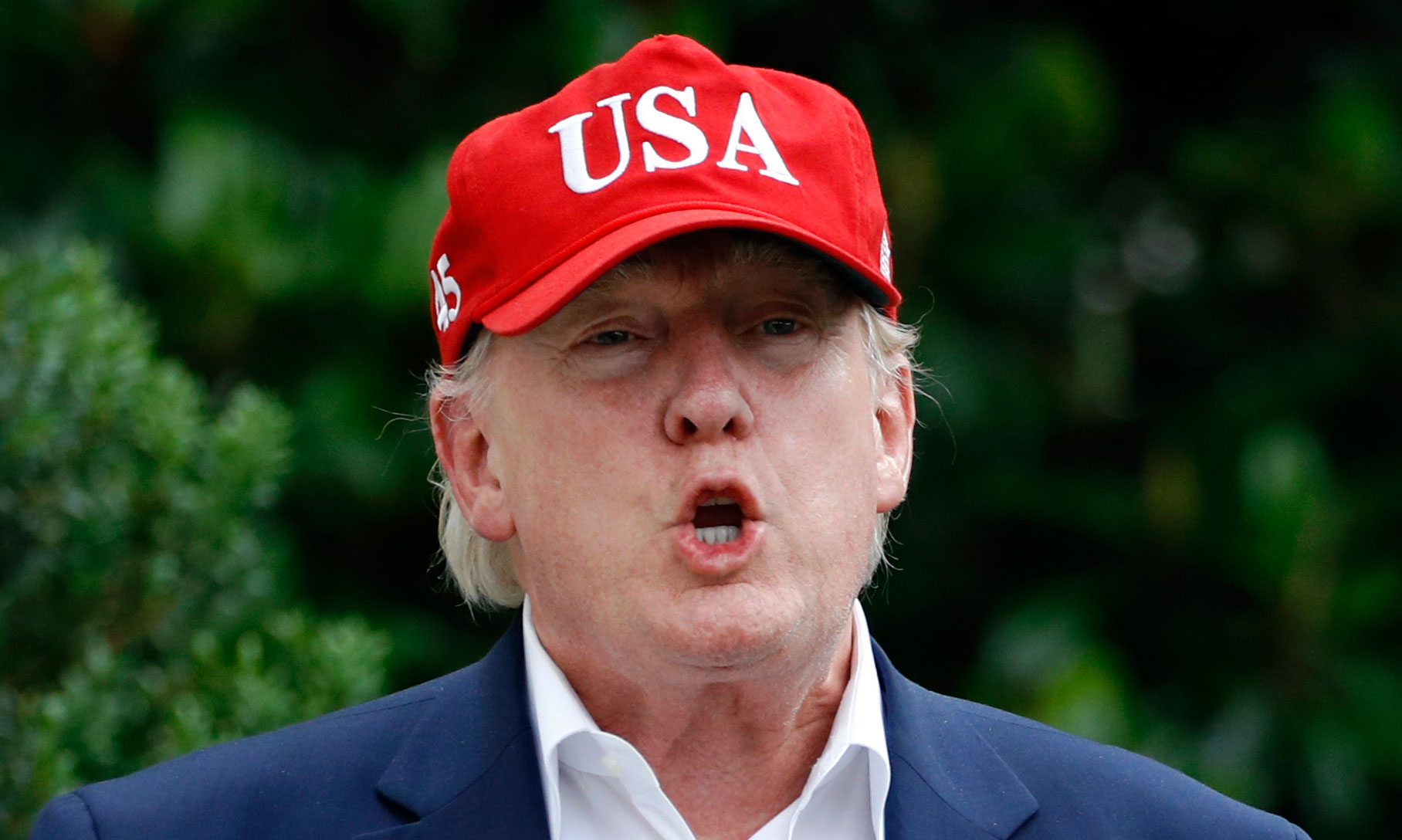House Democrats announced on Tuesday that they would move ahead this week with two articles of impeachment charging President Trump with abuse of power and obstruction of Congress, as they accused him of violating the Constitution by pressure Ukraine for help in the 2020 election.
Speaking from a wood-panelled reception room just off the floor of the House, Speaker Nancy Pelosi and leaders of six key committees said that Trump’s actions towards Ukraine, and his efforts to block Congress’s attempt to investigate, had left them no choice but to pursue one of the Constitution’s gravest remedies.
The move will bring a sitting President to the brink of impeachment for only the fourth time in American history.
“Today, in service to our duty to the Constitution, and to our country, the House Committee on Judiciary is introducing two articles of impeachment charging the president of the US, Donald J. Trump, with committing high crimes and misdemeanors,” said Representative Jerrold Nadler, Democrat of New York and the panel’s chairman. He stood before four American flags and a portrait of George Washington.
“Our President holds the ultimate public trust,” Nadler said. “When he betrays that trust and puts himself before country, he endangers the Constitution, he endangers our democracy, and he endangers our national security.”
The announcement comes a day after Democrats summed up the central allegations in their impeachment case against Trump: that he pressured Ukraine to announce investigations into his political rivals while withholding as leverage a coveted White House meeting for its President and $391 million in critical security assistance.
His actions, they argued in a lengthy hearing at the Judiciary committee, had placed the president’s personal political interests above those of the country, threatening the integrity of the election and national security in the process.
After more than two months of investigating the Ukraine matter, and a year of confrontation between the Democratic House and Trump, the impeachment process is now likely to unfold quickly.
The Judiciary Committee plans to promptly begin debating the articles as soon as Wednesday, and could vote by Thursday to recommend them to the full House of Representatives for final approval.
If the House follows through as expected next week, Trump could stand trial in the Senate early in the new year.
The Judiciary Committee planned to publicly release text of the articles later. While individual lawmakers will be able to propose amendments to the articles during this week’s debate and potentially force a committee vote on additional charges, they are not expected to substantively change.
Representative Adam B. Schiff of California, the chairman of the Intelligence Committee who oversaw the House’s Ukraine investigation, sought to forcefully dismiss complaints that the House was moving too quickly toward impeachment, a little more than two months after opening their inquiry.
“The argument ‘why don’t you just wait’ amounts to this: Why don’t you just let him cheat in one more election? Why not let him cheat just one more time? Why not let him have foreign help just one more time?”
The Democrats indicated that they would forgo another possible article under discussion in recent weeks that would have charged Trump with obstruction of justice based on his attempts to thwart Robert S. Mueller III’s investigation into his campaign’s ties to Russian election interference in 2016.
That decision reflected a calculated move by Democrats to push forward with a narrow case against Trump based on his dealings with Ukraine, after some of their moderate lawmakers in conservative-leaning districts signalled they would not support a broader set of charges.
The House Judiciary Committee held a day-long impeachment hearing.










